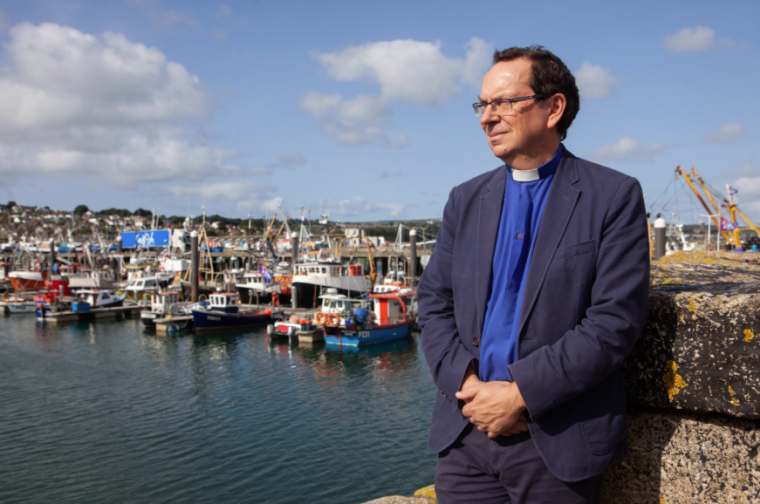The greatest threat to today's church? Lack of imagination
It's almost six years to the day since I was commissioned as executive leader of Church Mission Society in a moving service at St Aldate's Church in Oxford. And in just a few short weeks I embark on a new phase of ministry as Bishop of Truro, overseeing the Anglican Church's mission and ministry across Cornwall and the Isles of Scilly (not forgetting our two parishes in Devon). So it's a good time to take stock.
It's been a wonderful privilege to lead CMS over these years. I will go to Truro still as a member of the CMS Community, taking with me much of what I have learnt here. But what are those key lessons? They could probably take up a book or two – but let me here highlight three crucial lessons I feel I've learnt.

First, mission is always a creative act. I have a background in youth ministry and anyone who's been involved in ministry with young people knows that creativity is absolutely essential. But it's true of all mission and ministry. In my time in CMS I've seen countless examples of creativity, whether that's people setting up projects to help petrol-heads talk about cars and Jesus, farmers in rural Uganda discovering new ways of making the land productive, facilitating outreach and evangelism on housing estates, or the establishment of training hubs in London and Chelmsford to train mission pioneers.
If there is one significant threat to the church in the West, I think it's probably its lack of imagination. We are very used to doing things in the same old way. We are much less good at finding new ways of being church and making the good news known. But we need to. In the words of the recently canonised Oscar Romero, 'We are prophets of a future not our own.' But are we, actually? Our God is creative, and creativity is one of his greatest gifts to us. By his grace, may we rediscover it, and in the process find fresh hope for the future.
Second, I have learnt that from start the finish the Bible is a book about mission. There used to be an apologetic about the Bible that described it as 'the maker's instruction book', telling us what to do. Well I don't deny that it does tell us what to do – but above all it tells us what God has done, and is doing. Indeed I would say that the overriding theme of the Scriptures is 'the going-forth of God'. From start to finish the grand narrative of the Bible is about God going forth, reaching out to his world, in creation and in redemption. In other words it's all about the mission of God. And if we are truly to be shaped by the Bible then we need to let it shape us for mission above all.
My third lesson follows straight from that: mission is the heartbeat of God. Indeed I think you can argue that it is what he lives for. And it is indeed what Jesus died for. If the grand narrative of Scripture is all about the going-forth of God, we have to say too that above all it is about the going-forth of God in love.
Now that has so many implications it's difficult to know where to begin. But let me pull one out. When God came to us in love in Jesus, he accommodated himself to us. He came to us in a shape and a form we can understand. He came to us and became one of us. And that has to be our model in mission, to take context and culture, language and identity, so seriously. But I'm not sure we always do in the Church. Too often, I fear, we invite people to come to us and be like us. But if our mission is truly loving it will not be like that. Instead of inviting people to accommodate themselves to us we will go the extra mile and accommodate ourselves to them.
And it follows that above all mission must be about love – and if it's not about love, it's not mission. Mission is about love above all, much more than technique or text: doing and saying 'the right things'.
I was in Bolivia a couple of years ago when the world news was full of stories about the building of walls and hostility towards refugees and migrants. By contrast the projects I visited there, whether with street kids, children with HIV and AIDS or people struggling with addiction, all seemed to have so much love at their heart. In other words they expressed the loving, mission of heart of God: that love to which the Scriptures bear witness, demonstrated in so many different, creative ways.
And wherever God may call each of us in the future, may those always be the hallmarks of our mission too.
Rev Philip Mounstephen is the outgoing executive leader of Church Mission Society and Bishop-elect of Truro.











